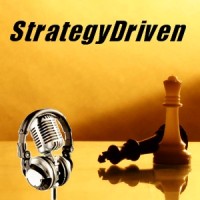Diversity and Inclusion – What is Diversity and Inclusion?

StrategyDriven Contributors
A diverse and inclusive work environment can only exist when members of an organization act in a manner that respects employee similarities and differences such that employees feel they and their work are valued and meaningfully contribute to the mission of the organization. It is in this kind of environment that employees become engaged and motivated to contribute the full extent of their knowledge, skills, and experience to the benefit of the organization on a day-to-day basis. Because they feel valued, employees within a diverse and inclusive work environment are less likely to seek employment opportunities elsewhere; subsequently reducing attrition and its associated productivity knowledge, and social cost.
Hi there! Gain access to this article with a FREE StrategyDriven Insights Library – Sample Subscription. It’s FREE Forever with No Credit Card Required.
| Sign-up now for your FREE StrategyDriven Insights Library – Sample Subscription
In addition to receiving access to Diversity and Inclusion – What is Diversity and Inclusion?, you’ll help advance your career and business programs through anytime, anywhere access to:
Best of all, it’s FREE Forever with No Credit Card Required. |

 StrategyDriven Podcasts focus on the tools and techniques executives and managers can use to improve their organization’s alignment and accountability to ultimately achieve superior results. These podcasts elaborate on the best practice and warning flag articles on the StrategyDriven website.
StrategyDriven Podcasts focus on the tools and techniques executives and managers can use to improve their organization’s alignment and accountability to ultimately achieve superior results. These podcasts elaborate on the best practice and warning flag articles on the StrategyDriven website.
 Geoff Loftus is author of
Geoff Loftus is author of  At times, organizations undertake ‘bet the company’ projects, initiatives so risky because of their sheer size, strategic importance, and/or operational impact that the project’s failure could bankrupt the company. ‘Bet the company’ projects necessarily demand heightened management awareness and focus, however, excessive diversion of leadership’s attention to these types of projects and away from others and/or day-to-day operations could also jeopardize the organization.
At times, organizations undertake ‘bet the company’ projects, initiatives so risky because of their sheer size, strategic importance, and/or operational impact that the project’s failure could bankrupt the company. ‘Bet the company’ projects necessarily demand heightened management awareness and focus, however, excessive diversion of leadership’s attention to these types of projects and away from others and/or day-to-day operations could also jeopardize the organization. Managerial decisions often deal with fluid conditions and high risk situations. What might be prudent at the time a decision is made may not be appropriate soon after and could even adversely impact the organization. Therefore, execution of these decisions and the circumstances they seek to address should be actively monitored.
Managerial decisions often deal with fluid conditions and high risk situations. What might be prudent at the time a decision is made may not be appropriate soon after and could even adversely impact the organization. Therefore, execution of these decisions and the circumstances they seek to address should be actively monitored.